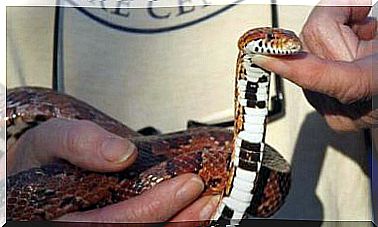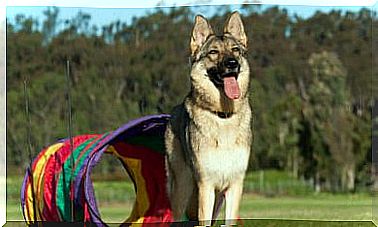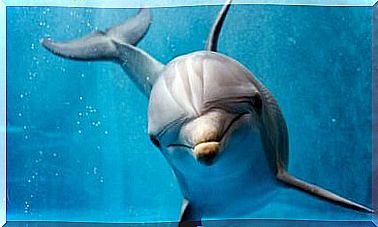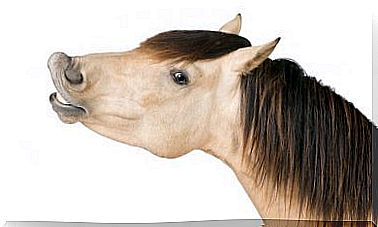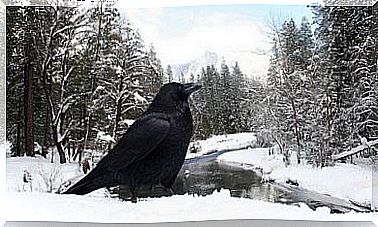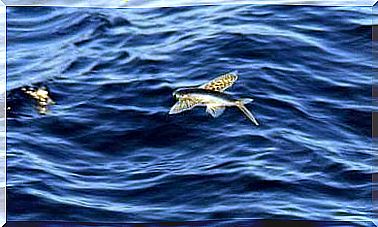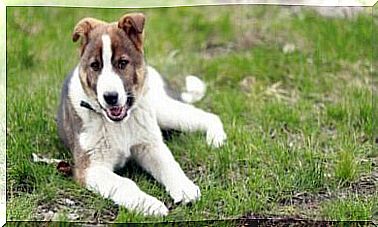What Do Captive Elephants Eat?
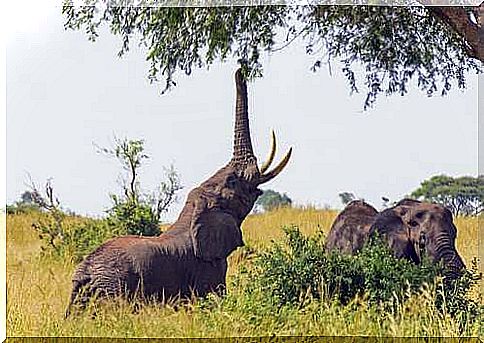
Knowing in detail how animals feed in the wild is of great help when it comes to meeting their needs in captivity. This is even more true in the case of elephants, very selective mammals with specific food needs. Therefore, a great deal of preparation is required to know what elephants in captivity eat.
In this article we will talk in depth about what elephants in captivity eat, the most important characteristics of these animals’ diets and how poor management of their food can cause serious health problems.
Generic food ecology of elephants
The natural diet of elephants can be divided into three categories, such as the three existing species: the African savannah elephant, the African forest elephant and the Asian elephant. However, much information is still lacking on the reasons for their incisive selectivity and other characteristics of their diet.
Elephants in nature have a very varied diet: they consume more than 400 different species of plants. The highest percentage is usually made up of grass, accompanied by leaves, twigs, roots, fruits, seeds, herbaceous plants, earth and stones.
Within this heterogeneity, scholars point out that these mammals make a careful selection of what they eat.
For example, during the rainy season, elephants tend to graze, that is, to take advantage of reeds and grasses at a time when their protein content is highest. It seems that elephants know exactly what is best for them to eat depending on the time of year.
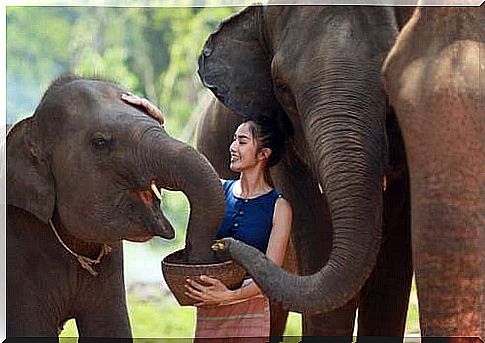
Behavior during feeding
Several studies show similar patterns in wild and captive animals when it comes to feeding. The usual trend seems to show three power peaks:
- One in the morning, fast and in small quantities.
- Another one in the afternoon, slow and much more abundant.
- Finally a peak at midnight, calm and adapted to the needs of that day.
Whether in the wild or in captivity, the need to move in search of water or shade to rest will reduce the feeding frequency of the animal.
What are the nutritional recommendations for feeding elephants in captivity?
Taking into account the physiology of this species and until further data are available, the minimum nutritional requirements are based on the dietary guidelines indicated for horses. That means:
- Good quality hay (forage) – this should form the basis of the diet.
- The rest will be concentrated, through complementary feed and food supplements.
One of the specific data available is the so-called “growth requirement” of 1,300 grams of protein per day. Contributions below this value or poor hay quality can lead to protein deficiency, and thus to the onset of diseases.
The concentrate is used to balance the deficiency of some vitamins and minerals in the forage diet, but in no case should it replace forage as the primary source of fiber. Otherwise, the proper functioning of the animal’s digestive system will be hampered.
Even so, it is true that at certain times in an elephant’s life (for example, during gestation) some of the hay can be replaced with higher quality alfalfa and the dose of some supplements can be increased.
Composition of a standard ration for captive elephants
In captivity, elephants consume around 150 pounds of food per day, which is quite a scarce amount compared to what they would consume in their natural habitat. However, the captive state allows them to save large amounts of energy, so you have to adapt the food to the new condition.
To meet this need, the ration must contain:
- Hay, which, as we have said, constitutes the main portion.
- All kinds of vegetables and greenery: acacias, cucumbers, lettuce, etc.
- Huge amounts of water.
Feeding elephants: how does it affect their health?
Keeping elephants in captivity is neither an easy nor a cheap job. Therefore, those responsible try in every way to improve their state of health and well-being and, consequently, increase life expectancy.
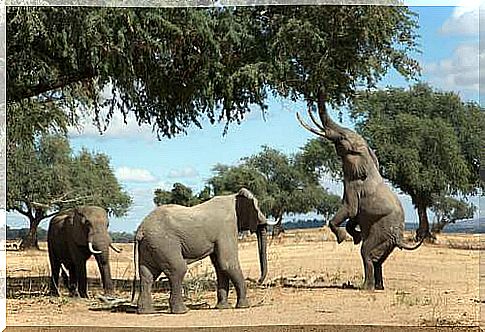
All animals in captivity, for example, tend to suffer from overweight and obesity. This is because they eat a lot but do not do the physical exercise they should, perhaps because they do not have enough space inside the structures or worse, they do not feel stimulated.
Colic is also a cause of great concern: using good quality hay as the basis of the diet is the most important preventive measure against this condition. In general, fruit, cereals, bread and other foods for humans are not recommended because they can be harmful.
